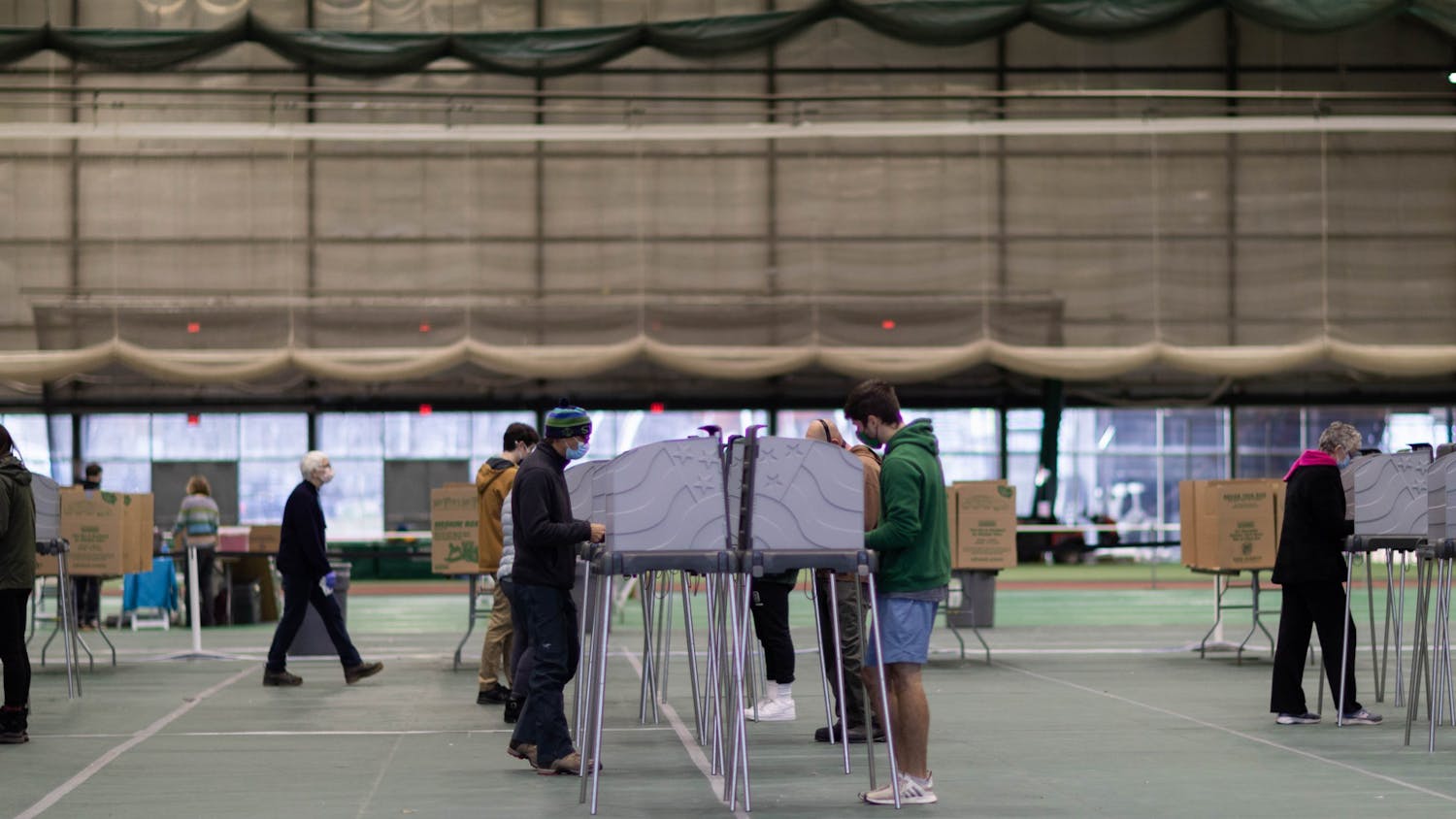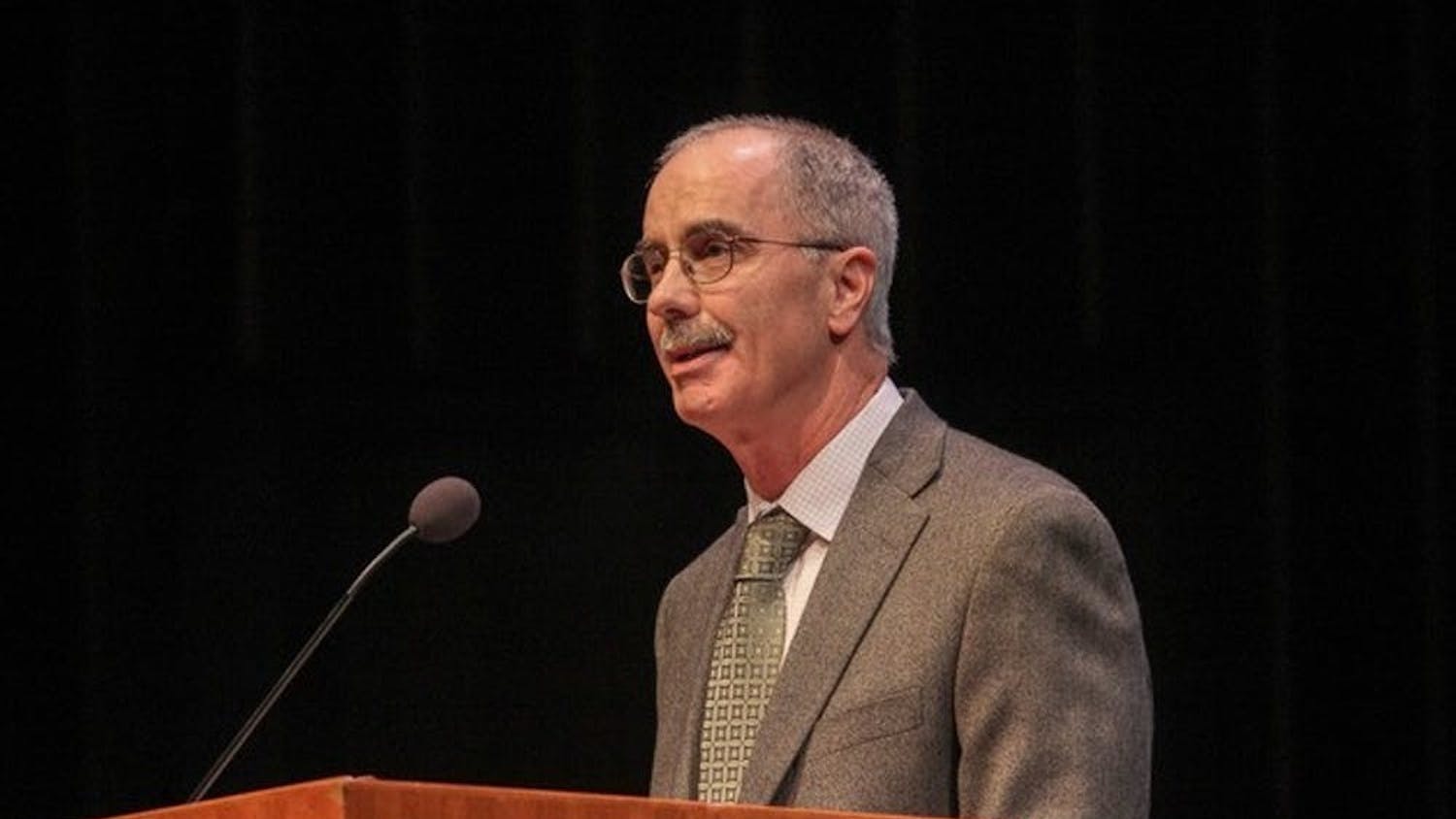Jason Mosel chose an unconventional way to celebrate Veterans Day this year. The Marine Corps veteran and network engineer for Information, Technology and Consulting ran 100 miles around Hanover carrying first a Marine Corps flag and then an American flag.
“Your brain basically sends a signal to your body saying that this is impossible. And then you override that signal, and show yourself and everyone else what is possible,” Mosel said about the run.
Mosel began his run at 8 a.m. on Tuesday and finished at 10 a.m. on Wednesday. Eight different students, staff and faculty members joined him for portions along the way. On Wednesday morning, he and those running with him raised the American flag on the Green.
In addition to commemorating Veterans Day, the run also honored the 245th anniversary of the Marine Corps and celebrated the launch of the Employee Resource Network for veterans on campus, which Mosel founded and leads.
ITC senior director for network services Felix Windt described Mosel as someone who “sets himself a goal and just goes for it.”
“He had to change shoes 60 miles in because his feet were swelling up to the point that the shoes he started out in were too tight, and he just keeps going,” Windt said. “He really is exemplary like that.”
The Veterans ERN at Dartmouth, which launches this month, plans to bring together employees who are veterans, veteran families and those who want to support the veteran community.
Mosel described the Veterans ERN as a “one stop shop” for information and resources for veterans and veteran families. Mosel said that during the pandemic, it has become even more important to ensure that veterans have access to the resources they need.
“I felt as though it was the time that we need to do something just as a community,” Mosel said. “There’s going to be somebody out there that needs this right now.”
Mosel added that the pandemic has added an extra stressor for veterans, exacerbating the need for a community and access to resources.
Christopher White Tu’22, also a Marine veteran, decided to run with Mosel because he thought that it would be a “great way to spend Veterans Day.” He met Mosel at 7 a.m. on Wednesday.
“[Mosel] had just finished mile 85. I could definitely tell that [Mosel] was hurting physically, but mentally he was in great, great spirits,” White said.
White said that Mosel talked with him about the Veterans ERN on their run.
“It's kind of funny … it's a very Marine thing to do to bring awareness to something by running 100 miles,” White said. “There [are] probably easier ways, less painful ways, to do it, but I think that's a great way to bring awareness to the [Veterans ERN].”
White said that he thinks the Veterans ERN will serve an important role, noting that a group for veterans creates a “good community” for “comfortable conversations” among people with shared experiences.
Windt said that he ran with Mosel for part of his 100 miles to support his colleague.
“[Mosel] tried to join an ERN for veterans, and they told him there wasn't one,” Windt said. “So being the person that he is, he just said, ‘Oh, I'll make one.’”
Windt said that he didn’t know what to expect when he signed up to run with Mosel, but that he was surprised by the community’s response.
“You would get honked at every 30 seconds by somebody waving out a window or shouting support,” Windt said. “And once we got onto the trails and Pine Park, there were a lot of students that were out there. It was amazing.”
This kind of run is not new for Mosel — in the past, he has completed other 100-mile runs, 200-mile runs and endurance events, many of which were intended to raise awareness for other causes, such as military suicides.
Mosel said that in all of his runs, nighttime is the hardest part.
“It’s getting through that dark period,” Mosel said. “The sun goes down, it gets dark and everyone goes to sleep — but you’re still going.”
He referred to the overnight part of his run as the “make or break” moment, but said there are two things he tells himself: to never quit at night and to never give power to his pain.
“By the time the sun comes up, I've pretty much made my decision that I'm not going to quit,” Mosel said. “So I always say, ‘just wait till the sun comes up.’”
He explained that he “just wanted to show everybody that it doesn't matter how big it is [or] how impossible it seems — that as long as you continue that forward momentum, even if it's just an inch, eventually that inch becomes a foot, and that foot becomes a mile and that mile becomes 100.”
Mosel said that he decided to do the ultramarathon because he thought that the community needed something more than another Zoom event.
“I wanted to get a little more creative,” Mosel said. “I wanted to find that good balance of everything where we can put on an event, stay socially distanced but still be able to bring the community together.”





